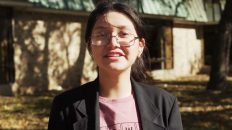

I could not pass up the opportunity to interview Alexey Root, distinguished chess educator – right here in Dallas! Chess players, what do you love about the game? What about other games too? What games do you think help children learn to think, plan, create, and do STEM? With summer coming up, I know we’d love to get a list of some great games to play with the kids.
Here’s my conversation with Alexey:
1. What do you love about playing chess? About teaching chess?
I enjoy playing chess because I have to think before every move. It’s challenging to come up with a long-term plan and also a specific next move.
When I teach chess, I plan lessons and activities where my students can be active, successful learners. It’s satisfying to watch them practice, and then master, the chess content I’ve chosen for them. my lessons always have “hands-on” or practice time. Also, I assess students individually to make sure they have succeeded in mastering the chess content. My students range in age from first grade (at Greenhill School) to adult (my students in the Chess Online courses at UT Dallas).
2. Any teaching stories that stand out in your mind?
One of my most recent teaching jobs was at the National Scouting Museum, teaching Boy Scouts trying to earn their Chess merit badges. This experience was memorable because I had planned every minute of the eight hours I had with the Scouts. Not only was I teaching them, I was testing ideas for my forthcoming (November, 2015) book, Prepare with Chess Strategy. That book covers the Chess merit badge requirements (and how to teach them) and is also for anyone interested in improving their understanding of chess strategy.
3. How does learning to play chess connect with other learning/ thinking skills? Do you see any connection between chess and doing science or STEM? Chess and other activities?
Yes, my books are about these connections. In Science, Math, Checkmate: 32 Chess Activities for Inquiry and Problem Solving, one connection that I discuss is the algebraic notation that chess players use to record their moves. Algebraic notation has similarities to the (x,y) coordinates of Quadrant I in plane geometry and is also like finding locations on a Mapsco.
4. When did you learn to play chess?
I was taught how to play chess by my father, when I was around five years old. He let me win. When I was nine years old, and defeating him “for real,” he took me to the chess club in my hometown of Lincoln, NE.
5. What else do you enjoy doing?
I swim an hour every day. I also spend a couple of hours each day petting my rabbit Denis. I am in favor adopting animals in need, such as Denis (who was left by his previous owners at the Humane Society of North Texas at age two years old and had ear mites when I first met him there). I donate to organizations that help animals, such as the North Texas Rabbit Sanctuary, Denton Animal Shelter Foundation, and the House Rabbit Society.
6. Do you have kids? If so what do they like to do and does that include playing chess?
I have two children. My son, William, is a freshman music education major at UNT. He’s also President of the UNT Chess Club and directed its first-ever USCF-rated tournament. (USCF stands for United States Chess Federation. As players get more serious about chess, they usually choose to play in USCF-rated tournaments.) William is also a good chess player and teaches private chess lessons. His students have been successful in local scholastic tournaments. My daughter, Clarissa, was a middle school chess champion. Now, however, Clarissa’s time is occupied as a first year vet student at Texas A&M and as owner of her adopted guinea pig Percy.
7. Any resources you’d like to suggest to parents and kids interested in pursuing chess?
I hope that your readers will investigate my books, available at local libraries and on Amazon. For online resources for children, I recommend:
ChessKid
Chess Kids Academy
For other resources for summer, consider chess camps. I’m teaching at the UT Dallas chess camps and teaching chess at MOSAIC, a Coppell camp that offers many courses (not just chess). Last year I taught at the Greenhill School chess camp but unfortunately couldn’t fit it in this year. Your readers have lots of local camp choices!
About Alexey:
Alexey Root earned her Ph.D. in education from UCLA. She is the author of seven books about teaching chess including Read, Write, Checkmate; The Living Chess Game; Science, Math, Checkmate; Thinking with Chess. She was the 1989 U.S. Women’s Chess Champion and has the “Woman International Master” title awarded by the World Chess Federation (FIDE). As a Senior Lecturer for The University of Texas at Dallas, she teaches online, college-credit, chess curriculum courses. Earlier in her career, she taught social studies and English in secondary schools. In public and private K-12 schools, after-school programs, recreation centers, camps, university courses, and private lessons, she has taught chess to over 3500 people.








Add comment